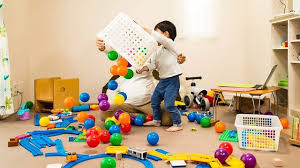
It's a heavy, uncomfortable feeling, that moment when we realize we've made a mistake. In that moment, we have choices. We can choose to over-engage with that experience and step into shame-based thinking and avoidance, or we can apologize, Yes, it's usually as simple as that. Utilizing an authentic apology is not only a necessary and effective relational tool, it's also a useful form of self care.
As parents, we often strive to be "perfect" role models for our children. Yet, just like everyone else, we’re not immune to making mistakes. Whether your children are still at home or have grown into adults, one of the most powerful ways you can demonstrate love and respect is by acknowledging your errors and making amends. Apologizing and attempting to repair relationships is not just beneficial—it’s essential, and it's never too late to start.
Why Apologizing Matters
1. Modeling Accountability: Apologizing to your children, regardless of their age, teaches them the importance of taking responsibility for their actions. This lesson is crucial for both their personal and relational development.
2. Building Trust: Honesty and vulnerability engender trust. When you apologize sincerely, you show your children that you value the relationship enough to own up to your mistakes.
3. Emotional Healing: Apologizing can be profoundly healing for both you and your child. It allows wounds—whether recent or decades old—to begin to heal, fostering a healthier emotional landscape for everyone involved.
Tips for Apologizing to Younger Children:
1. Get Down to Their Level: Physically lowering yourself to eye level can make the apology more sincere and direct.
2. Use Simple Language: Kids respond better to straightforward, age-appropriate language. Avoid complicating the apology with too many details.
3. Acknowledge Their Feelings: Saying something like, "I understand that when I raised my voice, it scared you. I'm really sorry," helps them feel seen and heard.
4. Allow the Apology to Stand Alone: Avoid redirection or pointing out what the child did that contributed to your frustration. Make sure the child always knows your emotions are not their fault or responsibility.
Tips for Apologizing to Adult Children:
1. Be Sincere and Specific: A heartfelt apology should clearly state what you’re apologizing for. Avoid vague statements like, “I’m sorry for everything.”
2. Validate Their Experience: Acknowledge their feelings and experiences without being defensive. For instance, "I didn't fully understand how my actions affected you, and I deeply regret it."
3. Focus on Repair and Growth: Offer actionable steps to repair the relationship and demonstrate a commitment to change. This could be through regular communication, therapy, or simply making an effort to be more supportive.
4. Accept Your Adult Child's Response: Apologizing is you taking responsibility for you. It's not a guarantee that your relationship will improve.
Studies in adult development, such as those by renowned psychologist Erik Erikson, highlight the importance of reflecting on past actions in later stages of life. Erikson's theory suggests that meaningful relationships and generativity—making amends and leaving a positive legacy—are vital components of a fulfilling life. Apologizing is a powerful way to foster these elements in your relationship with your children, regardless of their age.
Dr. Robert Kegan’s work on adult development also emphasizes the concept of evolving self-identity. Apologizing and repairing relationships can be a transformative experience that contributes to both emotional and cognitive development.
By openly embracing the power of an apology, you create a legacy rooted in love, humility, and growth. It's never too late to apologize and make amends. Whether it’s a heartfelt conversation over coffee with your adult child or a gentle word with your little one before bed, the act of apologizing can significantly strengthen your relationship, as well as your positive sense of self.
What have you found most challenging about apologizing? Share your thoughts in the comments below!

We've all been there. One moment your teen is asking politely for an extra hour of screen time, and the next, it feels like they are employing every trick in the book to bend the rules. It's easy to label such behavior as manipulation, but have you ever wondered what's really going on with your teenager in these moments? There's more there than you might think.
Teenagers are in a fascinating phase of growth and discovery, both physically and emotionally. Their attempts at persuasion, negotiation, and, yes, what sometimes feels like manipulation, are often part of a broader developmental journey.
Let's pull back the curtain to better understand what's really happening behind the scenes.
Cognitive Development: Testing Limits and Boundaries
Adolescence is a critical period for cognitive development. During these years, teens are honing their reasoning skills and beginning to think more abstractly. When they argue their case for extending curfews or skipping chores, they’re not just trying to wear you down—they're practicing the art of negotiation and learning the nuances of cause and effect.
Emotional Growth: Seeking Independence
Every teenager yearns for independence; it’s a natural part of growing up. What appears to be manipulation might instead be developmental steps towards asserting their autonomy. They are learning to express their desires, whether it's about making their own decisions or seeking more privacy. While it’s essential to set boundaries, recognizing this quest for independence can provide a balanced perspective on their behaviors.
Social Skills: Understanding Relationships
Teenagers are navigating the complex web of social interactions. When they attempt to influence you, they are also testing and refining their social skills. Understanding hierarchy, empathy, and effective communication are part of this equation. They’re learning what works, what doesn’t, and what crosses the line—key lessons that will serve them well in adulthood.
Emotional Regulation: Mood Swings and Stress Management
Adolescents often experience intense emotions and mood swings due to hormonal changes and brain development. Their mood might shift from joy to frustration within minutes, leading to behaviors that seem manipulative. Recognizing these emotional roller coasters can help you approach the situation with empathy and patience.
The Science of the Teenage Brain
Lastly, the teenage brain is still under construction. The prefrontal cortex, responsible for decision-making, impulse control, and understanding long-term consequences, isn't fully developed until the mid-20s. This biological fact means that teenagers are still learning how to make well-thought-out decisions and manage their impulses.
Tips for parents during these developmentally rich moments:
1. Set Clear Boundaries: Clear, consistent rules help teens understand expectations and the consequences of their actions.
2. Communicate Openly: Foster an environment where your teen feels safe to express their feelings and thoughts without fear of immediate judgment.
3. Offer Choices: Giving teenagers choices helps them feel empowered and teaches them to take responsibility for their decisions.
4. Model Behavior: Demonstrate the kind of respectful and open communication you expect from them. Don't take their behaviors personally.
5. Stay Involved: Be a part of their lives, showing interest in their activities and friendships.
While it might feel like teenagers are masters of manipulation, it's crucial to remember that these behaviors are often rooted in their developmental needs. By understanding the underlying causes, parents can better navigate these challenging, yet rewarding years. and not take their child's behavior personally. With patience, empathy, and clear communication, you can effectively guide your teenager towards their next stage of development - adult development.
Keep nurturing, keep understanding, and remember—you’re doing an amazing job. Your efforts today will pay off!










